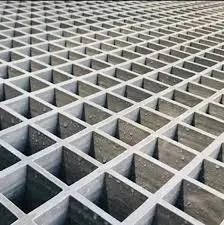High Temperature Fiberglass Products for Enhanced Durability and Performance
Fiberglass Products for High Temperature Applications
Fiberglass, a composite material made from fine glass fibers, has gained significant popularity in various industries due to its excellent thermal resistance, lightweight nature, and durability. When it comes to high-temperature applications, fiberglass products have proven to be an invaluable asset, providing solutions that ensure efficiency and safety in environments that experience extreme heat.
One of the primary advantages of fiberglass in high-temperature settings is its ability to withstand significant thermal stress. Unlike traditional materials such as metals or plastics, fiberglass is engineered to maintain its structural integrity even under intense heat conditions, often exceeding temperatures of 500°F (260°C). This makes it ideal for applications in industries such as aerospace, automotive, and manufacturing, where high-temperature resistance is crucial.
Fiberglass insulation is one of the most common products used in high-temperature applications. It serves as an effective thermal barrier, preventing heat loss and protecting sensitive equipment from overheating. This insulation is often employed in furnaces, boilers, and exhaust systems, where ensuring optimal thermal management is essential for efficiency and performance. The lightweight nature of fiberglass insulation also contributes to easier handling and installation, reducing labor costs and time.
Another notable application of fiberglass in high-temperature environments is in the production of composite materials. These materials are often reinforced with fiberglass to enhance their strength and heat resistance, making them suitable for components such as heat shields, thermal barriers, and industrial cooling towers. The versatility of fiberglass composites allows them to be molded into various shapes and sizes, enabling manufacturers to tailor solutions to specific requirements in high-temperature industrial processes.
fiberglass products for high temperature

In addition to thermal resistance, fiberglass materials often exhibit excellent chemical stability. This characteristic is particularly important in industries like petrochemicals and pharmaceuticals, where exposure to corrosive substances is common. Fiberglass products can withstand not only high temperatures but also harsh chemicals, ensuring a long service life and reliable performance in extreme conditions.
Moreover, the use of fiberglass in high-temperature applications can contribute to energy savings. By effectively insulating and protecting equipment from heat loss, fiberglass products help improve overall system efficiency. This results in lower energy consumption and reduced operational costs, which is advantageous for businesses looking to enhance their sustainability practices.
The versatility of fiberglass extends to its aesthetic appeal as well. In recent years, fiberglass materials can be manufactured to mimic the appearance of traditional materials such as wood or metal, blending functionality with design. This feature has opened avenues for using fiberglass in architectural applications, where both heat resistance and visual appeal are critical.
However, despite its numerous advantages, it is essential to consider appropriate design practices when working with fiberglass products in high-temperature environments. Ensuring proper ventilation, avoiding direct contact with extremely hot surfaces, and implementing regular maintenance are necessary to maximize the lifespan and effectiveness of fiberglass materials.
In conclusion, fiberglass products are indispensable in high-temperature applications across various sectors, offering solutions that prioritize safety, efficiency, and durability. As industries continue to evolve and face new challenges posed by extreme conditions, the demand for advanced materials like fiberglass will only increase. By harnessing the unique properties of fiberglass, manufacturers can create innovative products that meet the rigorous demands of high-temperature environments while promoting energy efficiency and sustainability.
Latest news
-
Oblate Tanks: Space-Saving, Durable Liquid Storage SolutionsNewsAug.27,2025
-
High-Performance Piping System Solutions for Industry & Commercial UseNewsAug.26,2025
-
Precision Fittings: Durable & Reliable Industrial & Plumbing SolutionsNewsAug.25,2025
-
Practical Steps: Unlock Success with Our Proven GuidesNewsAug.24,2025
-
Transport Tanks: Safe, Durable & Efficient Liquid HaulingNewsAug.23,2025
-
High-Quality Piping Systems for Efficient Flow & DurabilityNewsAug.22,2025











